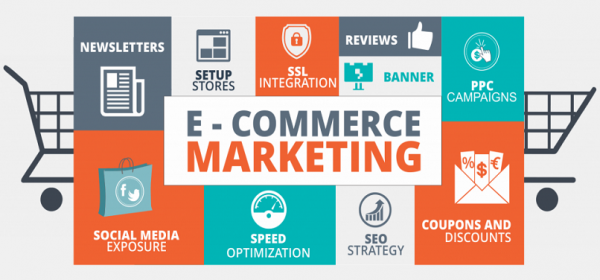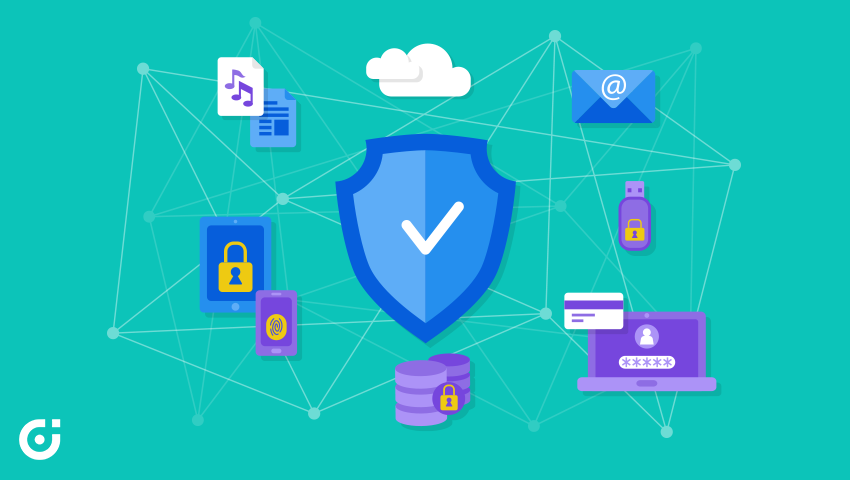eCommerce is more than an alternative retail option today, since it has become an imperative part of our lives. Today, with the help of online stores, we have got a plethora of options available to choose from right from within our computers or smartphones. But the rise of online stores also means more competition. To stay ahead in today’s eCommerce market you must have an effective eCommerce marketing strategy that takes you ahead of the competition and caters to the ever changing needs of online shoppers.
The right marketing strategy can help you break the clutter, increase customer loyalty and deliver long term profits. Getting your eCommerce marketing strategy right is not easy but it can be improved with proper research, best social media scheduler, right actions and broad business vision. Given below are some strategic insights that will help you create an effective eCommerce marketing strategy.
1. Set Realistic Goals To Begin With
Before penning down a strategy, set your goal and objectives that you want to accomplish. Work towards them to make a change. Ask two key questions, 1) what you want to achieve? 2) How will you achieve your goal? If these questions are answered clearly, then go ahead with the next step. Online businesses should set marketing goals that are tangible and measurable. Three of the most common goals include:
- Lead generation – Generate more and better leads
- Brand awareness – Create brand awareness and ensure top-of-mind recall in your niche
- Market education – Educating your TG about your product/services
2. Get You Product Strategy Right
The product strategy you adopt for your online store can make or break your business. In a world full of me-too ecommerce stores, you must provide something extra to make your customer’s purchase journey smoother and better. For example you can let your customers customize their products using a product design tool or give them the option to select their own product delivery dates using a delivery date picker. You should also have a mobile app for your store backend to manage orders and shipping anytime, anywhere and ensure faster shipping for your customer. All such differentiating factors, when considered together can become a winning strategy for your online store.
3. Marketing Analytics & Sales
An ideal way to keep track of your marketing efforts is to collect analytical data on your marketing and online sales. Ensure that the data you gather prevents you from straying off the road to success. You can start off your day with the thought “How my eStore is performing? Am I moving in the right direction in the market?” No information is too small when it comes to getting ahead productively. So, get all the data about your customers’ purchases, their buying habits and choices. Analyze traffic flow regularly. Get all data you can about visits, click through rate, conversions on sales and return on investments. And then act upon areas which need improvement.
4. Go Mobile, Go Global
Is your eCommerce store mobile friendly? If not then, make it mobile. It will be useful to market it worldwide and to all demographics. Responsive store design is certainly the most important step in making your online store optimized for multiple devices. It helps increase the purchases on mobile devices. Without a mobile app or a mobile optimized website, online buyers will straight away go elsewhere.
5. Right Content Marketing Strategy
Quality and relevant content is an indispensable aspect of your ecommerce marketing strategy. You not only need to produce superior quality content (blogs, landing pages, Infographics, ebooks, white papers, etc) than what your competitors are producing, you also need to have a detailed strategy for promoting all the content that you are creating. Content marketing can be very effective if the done the right way and can be a resource drain if done without the right strategy in place.
6. Get Secure CRM Software
Powerful and secure Customer Relationship Management (CRM) software will manage and streamline various business factors that helps build strong customer relationships. You can take your time to study the most popular CRM systems which work best for all business types. But once you have decided on a CRM platform, make it work for you. Utilize all the customer data for better upsell and cross-sell and increase customer satisfaction. Customer satisfaction is key to retaining customers and increasing repeat purchases.
7. Pay Per Click (PPC)
No ecommerce business can succeed without some sort of PPC advertising. Content or inbound marketing is a slow process and takes time to generate a steady flow of revenues. But till that time you can use PPC advertising to generate revenues to pay for creating digital assets for long term gain. Some business owners may find upfront investment in advertising prohibitive. In such cases one should do a test run and measure ROI from the ad spend. If the ROI is positive, more investment in PPC would mean more sales and profits. A positive cash flow from ad sales would mean more investment in ads and more sales and more profits.
8. Leverage Social Media
Social media and social recommendation play a great role in brand building through word-of-mouth publicity. You should use all the popular and relevant social media platforms to promote your products and content. Planning effective social strategies will definitely lead you on the growth path. Create a social following around your product group, educate and engage with your audience and it will automatically lead to more sales.
9. Invest In Brand Building
A well known brand is the only thing that is going to get your sustainable revenues in the long run. So significant investment in brand building is required through various offline and online channels. Investment in brand building may not drive sales immediately but it is indispensable if you are serious about building a steady customer base.





